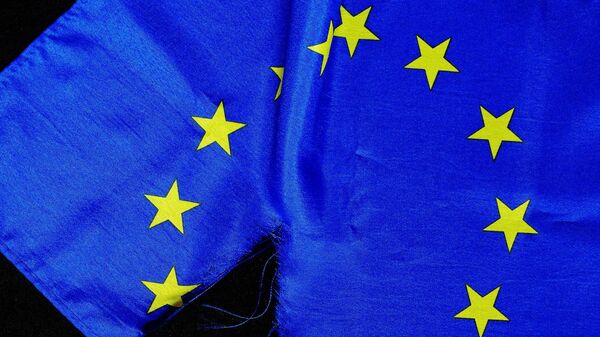In response to Paris’s new income tax targeting American digital giants, known as GAFA - (an acronym for Google, Amazon, Facebook and Apple, Washington may tax French champagne, cheeses, leather goods, and cosmetics.
A few hours before the NATO summit kicked off in London on 3 December, the Trump administration, represented by the US trade representative, warned of the possible introduction of tariffs of up to 100 percent on French goods worth about $2.4 billion in response to the French digital service tax.
The legislation, which was introduced by the French government in July, imposes a 3 percent levy on the total annual revenues of digital giants, whose turnover reaches 750 million euros internationally and over 25 million euros in France.
Lawyer Olivier Piton, a practitioner in France and the US, founder and former head of the French Embassy's office for strategic influence in Washington, hopes there will be out of this situation before 14 January, when the second block of sanctions can be introduced on French goods imported into the United States.
“This was the case during the trade war between the US and China. It takes time. Negotiations have just begun. [...] Under no circumstances would I start to speculate which decision will ultimately be made, and whether the parties will be able to come to an agreement.
One thing is clear - Donald Trump defends the interests of GAFA, even if the latter is not very grateful to him for this, but this is a separate issue,” the lawyer explained, while French President Emmanuel Macron upholds the interests of France and at the same time the interests of Europe, he added.
“Thus, our positions seem to contradict each other, but it should be noted that sanctions against GAFA should have been imposed on the basis that these companies do not pay enough taxes in Europe. A completely different thing with French wines - in the United States they are taxed, and the tax is paid. That is, the situation here is completely different and I would call Trump's attacks a blow below the belt. We have the right to do so, but GAFA doesn’t! ”
According to the US Trade Representative, France’s Digital Services Tax (DST) “discriminates against US companies, is inconsistent with prevailing principles of international tax policy, and is unusually burdensome for affected U.S. companies.”
Mr. Piton says that America is acting like a wealthy person complaining that he does not have the opportunity to pay fewer taxes.
“By law, GAFA has the right to do this, but in terms of ethics, to pay a maximum of 15-20% of taxes because there is a branch associated with another branch in one of the countries of the European Union - I will not name them - which are engaged in tax dumping... Yes, by law the rules are respected, but from an ethical point of view this is far from the case.”
France has warned that new tariffs would draw a “strong response” from the European Union. But is it possible to expect a unified response from Europe if 28 EU member states have failed to agree among themselves on the GAFA tax?
“At the moment, Emmanuel Macron is trying - to his credit - to ensure joint decisions from EU states are adopted on some issues. Unfortunately for both him and us, the results achieved are not yet inspirational, particularly with regard to NATO. He is right in his attempt to harmonise GAFA taxes at a European level. But will he succeed? This is a very complicated matter. One can only regret that in terms of diplomacy, in particular, tax diplomacy, the EU countries have different interests. Let's see what happens, but it will be difficult,” the lawyer said.
Indeed, it is difficult to imagine how, in these issues, let's say, Ireland will be able to resist the United States. But the main issue right now is Germany.
In Mr Piton’s views, Germany” with incredible tenacity” resists all the proposals made by France on numerous issues with regard to international relations.
“Today we are seeing a real confrontation between France and Germany which rarely happened in the past,” the expert stressed.
“Germany systematically blocks all the proposals put forward by France, and as long as it does so, we will not have the slightest chance to agree on anything at the European level. If Germany agrees with a number of French proposals - in various fields, including defence, then things will go well. In the meantime, from the point of view of economic and diplomatic relations, there’s a cold war with Germany,” Mr Piton explained.
“When it comes to issues that do not cause much controversy, there is unity. But as soon as it comes to serious, specific issues, national interests again come to the fore. In this regard, we are not the worst - the Germans are far greater nationalists than we are. And this is confirmed by the fact that on all disputed issues between France and Germany, our opinions differ radically,” Mr Piton concluded.


